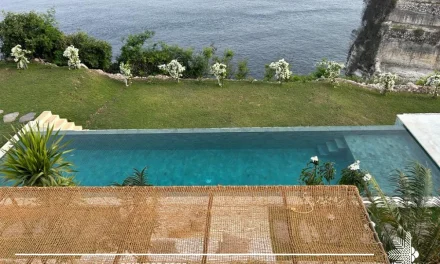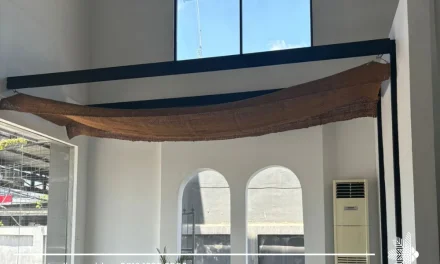Introduction to Coir-Based Shade Solution
Coir-based shade solution is gaining increasing attention in modern sustainable architecture and agriculture due to its eco-friendliness, durability, and cost-efficiency. Derived from the fibrous husk of coconuts, coir has traditionally been used for making ropes, mats, and brushes. However, in recent years, innovative applications such as shade solutions have transformed how we approach sun protection and temperature regulation.
Coir-based shade solution offers a natural alternative to synthetic materials commonly used in agricultural greenhouses, residential patios, and commercial outdoor structures. These natural fiber shades are biodegradable, renewable, and have excellent insulating properties that help reduce heat without completely blocking light. Their sustainable characteristics make them ideal for eco-conscious developers, farmers, and homeowners.
Benefits of Coir-Based Shade Solution

Environmental Sustainability
One of the major advantages of using a coir-based shade solution is its environmental impact—or lack thereof. Unlike plastic or synthetic shade materials, coir is 100% biodegradable and compostable. Its use supports waste reduction, especially in coconut-producing countries where husks are often discarded. By converting this agricultural byproduct into functional products, we contribute to a more circular economy.
Furthermore, the production of coir requires minimal chemical processing. The fibers are naturally resistant to decay and pests, reducing the need for harmful preservatives or pesticides that might otherwise leach into the environment. These qualities make coir-based shade solutions an excellent choice for organic farms and green building projects.
Practical and Functional Advantages
Functionally, coir-based shade solution excels in both agricultural and architectural applications. Its dense yet breathable weave provides moderate shade, helping to maintain cooler temperatures under direct sunlight without eliminating natural light altogether. This is particularly important in greenhouses or crop protection systems where partial sunlight is essential for plant growth.
In residential or commercial spaces, coir shades can be used as canopies, pergola coverings, or outdoor blinds. They offer aesthetic appeal with their rustic, natural appearance and blend seamlessly into eco-themed design concepts. Their texture and flexibility allow for creative installation, whether suspended, rolled, or layered.
Additionally, coir-based shade solution has excellent durability. When treated properly, coir fiber resists UV radiation, humidity, and mechanical stress. It does not tear easily and can last several seasons outdoors, depending on climate conditions. Maintenance is also minimal, requiring only periodic cleaning and occasional adjustments to ensure optimal tension and coverage.
Economic and Social Impact
Coir-based shade solution not only supports environmental goals but also fosters economic growth, particularly in rural areas of coconut-producing nations. The coir industry provides employment opportunities for thousands of workers involved in fiber extraction, processing, and product manufacturing. Small-scale artisans and cooperatives often benefit the most from this growing market.
Moreover, the relatively low production cost of coir makes it a competitive material. Compared to synthetic alternatives, coir-based products are generally more affordable and easier to recycle at the end of their life cycle. These economic advantages make it feasible for smallholder farmers, homeowners, and local businesses to adopt sustainable practices without incurring high costs.
Applications of Coir-Based Shade Solution
Agricultural Use
In agriculture, coir-based shade solution is used to cover plant nurseries, livestock areas, and composting zones. The breathable structure allows for air circulation while reducing direct heat, thereby protecting plants from sunburn and dehydration. It is especially effective in tropical regions where solar intensity can negatively affect crop yields.
Farmers also use these shades during seed germination and transplanting phases when young plants are highly susceptible to temperature fluctuations. In some regions, coir shades are used alongside drip irrigation systems to maximize water efficiency and improve soil moisture retention.
Residential and Commercial Use
For homeowners and businesses, coir-based shade solution offers a unique aesthetic and functional benefit. In gardens and outdoor patios, they provide cool, shaded retreats without relying on electricity-consuming systems like fans or air conditioning. In hotels, cafés, and eco-lodges, coir shades enhance the natural ambiance while reinforcing the brand’s commitment to sustainability.
Disaster Relief and Temporary Shelters
Coir shades are also valuable in humanitarian efforts. Their lightweight, foldable design makes them ideal for rapid deployment in disaster relief settings where temporary shade or shelter is required. The material’s natural properties provide a breathable, safe covering that can be disposed of with minimal environmental impact.
Conclusion
The coir-based shade solution is an innovative, sustainable, and cost-effective alternative to traditional shading methods. By leveraging the natural properties of coconut husks, this solution offers environmental, functional, and economic benefits across various sectors, including agriculture, architecture, and community development.
As the demand for eco-friendly materials continues to grow, integrating coir-based shade solutions into our designs and practices not only supports sustainability but also empowers local economies and promotes healthier environments.
For more information, please contact us via WhatsApp at (+62) 812-1233-3590 or email us at sales@arlion.co.id.




